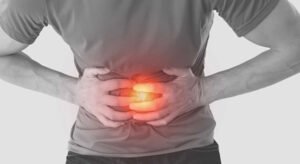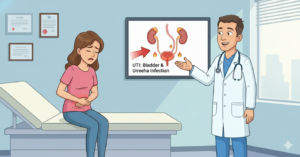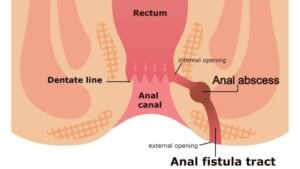
Healing Your Gut: The Ultimate Guide to Stomach Ulcers
Stomach Ulcers: Healing Your Gut & When Surgery is Necessary | Shri Tirupati Hospital Shri Tirupati Hospital Locate Us Book Now Excellence in Gastroenterology Healing
For Any Grievance or Feedback
It performs over 500 vital functions, yet often shows no signs of trouble until it's serious. This guide helps you understand the subtle signs your liver might be sending for help.
Explore the Warning SignsUnderstanding the baseline of a healthy liver is the first step to recognizing when something is wrong. Here’s a look at what separates a happy, functioning liver from one that's struggling.
Your body often sends subtle signals when the liver is in distress. Click on any symptom below to learn more about its connection to liver health and what it might mean for you.
Not all symptoms carry the same weight. This chart helps visualize the urgency of seeking medical advice based on specific signs. Hover over the bars for more context.
You have the power to protect your liver. Incorporating these simple, proactive steps into your lifestyle can make a significant difference in its long-term health and function.
Focus on whole foods: fruits, vegetables, lean proteins, and healthy fats. Limit processed foods, sugar, and saturated fats to prevent fat buildup in the liver.
Obesity is a major risk factor for fatty liver disease. Regular exercise and a healthy diet are your best tools for weight management.
Excessive alcohol is a direct toxin to liver cells. If you drink, do so in moderation. For some, complete avoidance is necessary.
Water helps your liver flush out toxins more effectively. Aim for 8 glasses a day to support its natural detoxification processes.
Many medications, including over-the-counter drugs, can strain the liver. Always follow dosing instructions and consult a doctor about potential risks.
Early detection is key. Regular blood tests can catch liver problems before they become serious, especially if you have risk factors.

Stomach Ulcers: Healing Your Gut & When Surgery is Necessary | Shri Tirupati Hospital Shri Tirupati Hospital Locate Us Book Now Excellence in Gastroenterology Healing

Recurrent UTIs: Why They Happen & How to Stop Them | Shri Tirupati Hospital Shri Tirupati Hospital Home Why UTIs Return Prevention FAQs Cashless List

Anal Fistula: Causes, Symptoms, and Expert Care in Delhi NCR Shri Tirupati Hospital Home What is Fistula? Symptoms Diagnosis FAQs Cashless Services Book Consultation Home
Posted onTrustindex verifies that the original source of the review is Google. I would like to thank everyone in hospital I was so scared of surgery but everything went smoothly and all staff is very helpful and kindPosted onTrustindex verifies that the original source of the review is Google. डॉ राजीव गोयल के यहां पर सर्जरी कराई है मुझे यहां पर कोई भी परेशानी नहीं हुई है और पूरी तरह से अच्छा लगा डॉक्टर साहब को हम लोग लगभग 20 वर्षों से जानते हैं जो इनका 20 साल पहले व्यवहार था आज भी वही व्यवहार है और स्टाफ की तरफ से भी बहुत अच्छा लगा बिल्कुल घरवालों जैसी सेवा की चाहे डॉक्टर साहब वहां पर थे या नहीं उन्होंने रात को मुझे 12:00 गर्म पानी की जरूरत हुई तो स्टाफ ने लाकर दिया धन्यवाद डॉक्टर साहब बार-बार Advocate Ramlal Roza JalalpurPosted onTrustindex verifies that the original source of the review is Google. We came for my wife's surgery and it was done through cashless facility # star health. TPA staff supported a lot from admissions to discharge.Posted onTrustindex verifies that the original source of the review is Google. All Good, staff treated nicely.Posted onTrustindex verifies that the original source of the review is Google. Nice hospital and management of facilities. Staff is supportive and helpful.Posted onTrustindex verifies that the original source of the review is Google. We came here for my mother's operation after my friend's suggestion and the best decision we made to visit here and took treatment by Dr. Rajeev Goel. She got Speedy recovery and she is completely fine now.Posted onTrustindex verifies that the original source of the review is Google. My operation was done here through cashless # star health and honestly very nice management I have seen here. Staff supported and helped a lot they talk so nicely. Dr. Lakshay Goel is very helpful.Posted onTrustindex verifies that the original source of the review is Google. My wife's operation was done here through cashless facility # Star health and whole documentation was done very smoothly and TPA staff is very supportive. Dr. Rajeev Goel is very nice doctor.Posted onTrustindex verifies that the original source of the review is Google. We recently visited Shri Tirupati Hospital and we are really very impressed by the management and maintenance of the hospital. Everything is perfectly managed and nice facilities. Highly recommended this hospital to all.Posted onTrustindex verifies that the original source of the review is Google. My operation of hernia was done here in Shri Tirupati hospital by Dr. Lakshay Goel and honestly he is very friendly and kind natured. He understands our concerns and supported a lot.
OPD Timings: – 09: 00 AM to 02: 00 PM (Except Tues. & Friday) 06: 00 PM to 08:30PM (Daily)
X-RAY:- OPD: – 09:00 AM to 02: 00 PM
USG:– 03: 00 PM to 04: 00 PM
LAB Sample Collection: – 08: 00 AM to 09: 00 PM